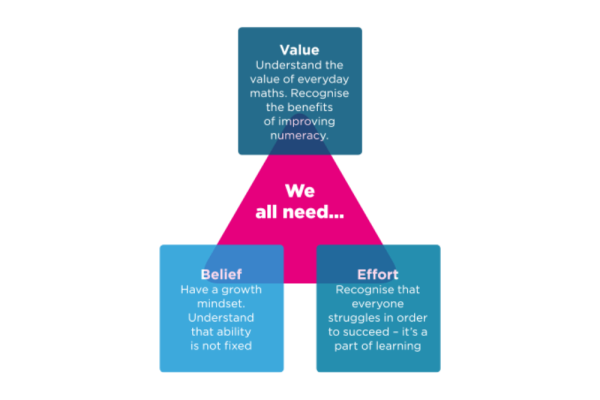It is culturally acceptable in the UK to be negative about maths, in a way that we don’t talk about other life skills. We hear ‘I can’t do maths’ so often it doesn’t seem a strange thing to say (Kowsun, 2008). Maths is seen as the remit of ‘mad scientists’, ‘nerdy’ boys, and the socially inept (Epstein et al, 2010). Too many children are told they need a maths brain - we talk about maths as though it is a genetic gift possessed only by a rare few, and inaccessible to the general public.
Yet we all need maths, not just for school, but for everyday life and work. "Good numeracy is the best protection against unemployment, low wages and poor health" (Andreas Schleicher, OECD, 2013).
This paper looks at the causes of negativity, the impact this has, and what can be done to improve attitudes towards maths and numeracy.





